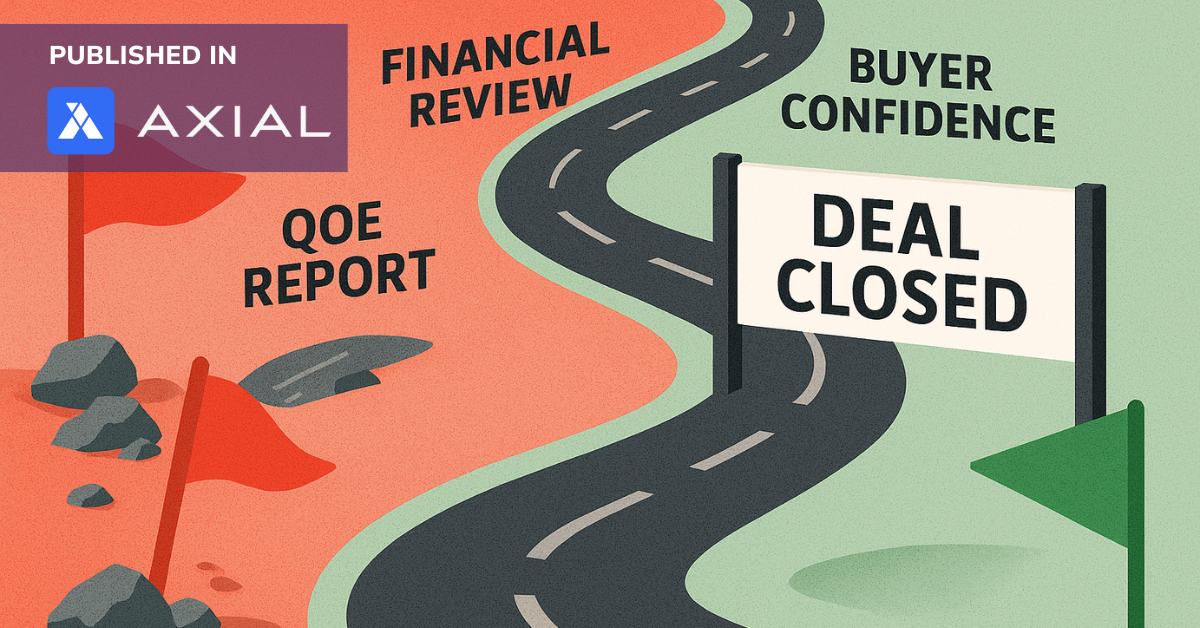Integration company owners looking to sell must assess their company value, identify potential buyers and prepare their business for prospects.
If there is one thing that the unprecedented pace of acquisitions in the AV integration market can tell us, it’s this: There are lots of integration company owners that are open to selling.
Maybe it’s because many companies in the AV integration market were founded in the 1970s, ’80s and ’90s by owners now looking to ease into retirement. Maybe it’s because company owners of all ages recognize an opportunity around the trend toward private equity investment in the AV industry. Whatever the reasons integration firm owners are increasingly listening to poten¬tial suitors, there are vital steps they should take while considering the momentous decision.
Determining Your Business’ Worth
For company owners considering the possibility of a sale, it’s critical to know how to assess the value of your business before beginning the process.
While there are several academic/theoretical ways to calculate business value (i.e. discounted cash flow, public com-parables, transaction comparables, etc.), these methods do not consider the many qualitative factors that can really drive business value to the upper end of a valuation range. Such qualitative factors include:
– Scale (larger businesses are viewed as more diverse, less risky and therefore carry higher valuation multiples)
– Industry (industries that have size, perceived health and robust growth prospects generally see higher valuations multiples)
– Growth (businesses that have demonstrated a track record of higher growth are generally viewed as more valuable)
– Management (businesses with successful and experienced leadership teams receive higher valuations than those with weaker management)
The specifics of your business can really impact its value. It’s important for you to understand the value that a buyer or investor will see in your company. Does your business represent the missing link in a buyer’s strategic plan? If the purchaser is strategic, then you need to know how your business will impact the value of their business to obtain the highest valuation.
Don’t assume that an industry average multiple is the right valuation metric for your business. This is particularly poignant for commercial integrators. The marketplace places different value on cash flows associated with project-oriented businesses than those that result from recurring revenue streams (such as managed services). Integrators whose business is a hybrid should take that into account particularly when allocating investment dollars to their business. And never underestimate the power of competition. A competitive sell-side process can drive buyers to bid against each other to reach valuations unsupported by any model.
The bottom line is that there is no straightforward answer to the question of “What is my business worth?” Business value is driven by a combination of financial models, qualitative factors, and, in many instances the personal emotions that can drive one buyer to pay more than another. A good investment banker will position the acquisition opportunity in the most favorable light to potential buyers and create a competitive environment to drive buyers to be as aggressive as possible.
Identifying Potential Purchasers When a commercial integrator begins contemplating the sale of their business, they should be aware that there are options as to “who” will make the best buyer for their business. Financial buyers (i.e. private equity, venture capital) and strategic buyers continue to be very acquisitive and interested in the commercial integration sector. The best transaction partner will ultimately depend on the needs and desires of the owner.
Here is an overview of each, as well as key considerations to factor in when making a decision.
Financial Buyers
While financial buyers typically include private equity, venture capital, hedge funds and family investment offices, it is the private equity buyer that has been most active in the commercial integration sector. Private equity sponsors typically employ a buy-to-sell approach. The growth of the private equity sector is predicated on its standard practice of buying businesses and then, after steering them through a transition of performance improvement and add-on acquisitions, selling them. This is at the core of private equity’s success. (See sidebar for more.)
Strategic Buyers
Strategic buyers are typically larger operating companies who generally have a strategic angle when acquiring a business. There are two types of strategic buyers — those from within the industry (internal) and those from outside the industry (external):
The Internal Strategic Buyer likely already has a meaningful presence in the integration sector and is looking for businesses that can be integrated into and complement their core busi¬ness. In strategic acquisitions, buyers are primarily looking for synergies from combining companies that will increase market share, expand capabilities or geography, add exposure to new and growing end markets and ultimately improve profitability. It’s a long-term buy-and-hold strategy.
While a strategic buyer can be a competitor, it is equally as likely to be in a complementary business or adjacent industry, these are considered Exter¬nal Strategic Buyers (i.e. low voltage, mechanical, IT services, etc.). Strategic buyers from adjacent industries are increasingly seeking opportunities to enhance relationships with their enter¬prise customers by offering highly complementary integration services.
Customers increasingly prefer one vendor for their AV/IT needs, or as I like to call it, the one-throat-to-choke model.
Look for ways to increase earnings and maximize profitability now so you will have an established track record by the time you go to market.
While financial buyers are primarily focused on the financial metrics, sellers can maximize the value of a transaction by getting buyers focused on things beyond the numbers to the overall value the company can bring to the acquirer in the short and long-term. As a result, strategic buyers generally can and will pay more for a business than a financial buyer.
Steps to Prepare
Your Business for Sale
The first “step” in preparing your business for sale is understanding that, by preparing, you are more likely to rise to the top of a prospective buyer’s list and garner top value. How well you prepare your business for sale will make all the difference in its perceived value in the marketplace.
Prospective buyers look for very specific factors when developing their valuations of your company. And whether you plan to sell to a financial or strategic buyer, sell to your management team or transfer ownership to the next generation of family, focusing on the following steps will materially impact the value of your business.
Why is the AV Integration sector appealing to private equity investor?
The great interest that the investment community has taken in the AV integration market was a central focus in Commercial Integrator’s 2018 State of the Industry Report. The industry has seen high-profile firms partner with private investors such as AVI-SPL (acquired by an affiliate of H.I.G. Capital), Diversified (investments by Tailwind Capital) and Verrex (acquired by Five Crowns Capital). Chuck Wilson, executive director of NSCA, says he fields a steady stream of calls from private equity investors and that wasn’t always the case. Things started to change about three years ago, and he suggests a few factors that kindled the AV industry’s profile among investors:
– A mindset that interest rates would stay low
– Growing enthusiasm for smart buildings and Internet of Things
– Prices of the devices installed actually going down
– A need to be more energy efficient
– A need to be more safe
– Desire for more functional meeting spaces
There are some characteristics of acquisitions by private equity firms that Ari Fuchs, director of DAK, an investment banking and advisory firm, suggests integrators ought to understand:
– Private equity funds will generally fund an acquisition with a combination of equity and third-party debt and then steer the business through a transition of performance improvement, organic growth and add-on acquisitions.
– On average, private equity firms will hold their investment between three and five years, then either sell to a larger private equity firm, strategic buyer or, if the company is large enough, through an Initial Public Offering. [Editor’s note: There are obvious exceptions to this rule within the AV integration market.]
Meanwhile, Fuchs cites his own reasons why private equity firms are interested in the commercial integration industry:
– The sector is experiencing growth driven by continued innovation in technology and the rise of IT-centric unified communications positions.
– The industry is highly fragmented, providing exceptional opportunities for value-add, bolt-on acquisitions.
– The rising importance of managed services and associated recurring revenue streams (valuation multiples are substantially higher for businesses that can demonstrate recurring revenues) make the case for private equity interest and expanding valuations in the sector. —Tom LeBlanc
1. Be Ready to Sell at All Times
It is critically important to have your business ready for the sale process. And that means preparing it well in advance of when you’re planning run a sale process. If you wait until you’re ready to sell to optimize efficiencies, your greatest opportunity to build value is lost.
Look for ways to increase earnings and maximize profitability now so you will have an established track record by the time you go to market. By keeping your focus on operation efficiency now, you’ll build value at the closing table.
2. Communicate Your Vision of the Future
Buyers are interested in potential — they generally buy the future, not the past. You must be able to paint a compelling and defensible picture of your company’s path forward and the opportunities that will propel its growth in the years ahead.
Do not leave it to the buyer to understand your company’s vision for the future. You cannot count on them to do the work of selling themselves on your business. It will be well worth your time to develop a cogent, supportable message that powerfully and logically communicates your vision of the company’s future.






